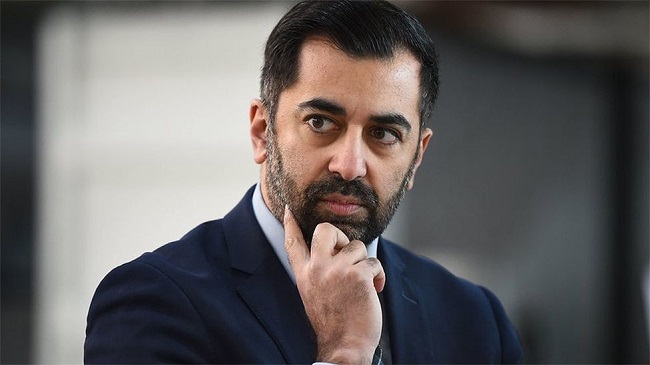Scottish First Minister Humza Yousaf has resigned barely a year into the role after the collapse of his coalition government, a humbling and chaotic departure that threw Scotland’s ruling pro-independence party into chaos.
Yousaf’s coalition government fell apart unexpectedly last week when he tore up a coalition agreement with Green Party lawmakers, a risky move that backfired spectacularly when the Greens said they would vote against him in a confidence motion.
The ruling SNP will now hold a leadership candidate to replace Yousaf, he announced in a news conference on Monday.
Yousaf took over as the leader of the Scottish National Party (SNP) party last March, hoping to extend the party’s domination of politics north of the border into a third decade and strengthen the case for a new referendum on Scottish independence.
But the party’s ever-worsening legal woes and a tumultuous coalition agreement put his leadership on brittle footing, and an unforced error to throw two Green lawmakers out of his government sent Yousaf into a five-day fight for his job.
“Unfortunately, in ending the Bute House Agreement in the manner I did, I clearly underestimated the level of hurt and upset that caused Green colleagues,” he admitted in his news conference.
“For a minority government to be able to govern effectively trust when working with the opposition is clearly fundamental,” he said.
The left-leaning SNP has led Scotland’s devolved government since 2007 and forced an independence vote in 2014 in which Scottish voters opted to remain part of the United Kingdom.
Yousaf has argued for another vote to be held in the coming years, insisting that Britain’s exit from the European Union – which Scots had voted against – changed the calculus.
But his calls have been batted back in Westminster and undermined by a long-running police investigation into financial irregularities by the SNP, which has eroded its public support.
The SNP will now look to elect a replacement to lead Yousaf’s government, but they are two seats short of a majority in Holyrood, Scotland’s seat of power, meaning any potential leader would have to win over opposition lawmakers in order to govern effectively.
Scotland had pitched itself as a global climate leader by setting a goal of slashing carbon emissions by 75% by 2030, from 1990 levels — one of the most ambitious targets in the world. But Yousaf’s government was forced to admit earlier this month that the nation was off track in meeting the goal and scrapped the target outright.
Yousaf said that the goal, which was set before he came into office, was “beyond what we are able to achieve.”
ALSO READ THESE TOP STORIES FROM NIGERIAN TRIBUNE






